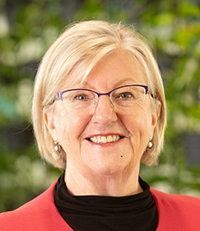Navigating End-of-Life Care Conversations: Insights from Experts
A blog post by Dr Lenore de la Perrelle, Research Fellow, ELDAC
In the realm of aged care, the importance of end-of-life conversations is paramount. This is particularly true for family members and staff who are often at the forefront of caregiving. Dr Lenore de la Perrelle recently hosted a discussion featuring Dr Kristen Bindley, Dr Raechel Damarell, and Dr Priyanka Vandersman. Each brought unique perspectives on why and how these conversations should unfold, stressing the need for both family engagement and support for aged care staff.
Understanding Family Needs in End-of-Life Care
Kristen, a postdoctoral research fellow at the University of Technology Sydney (UTS) with a background in social work, highlighted the critical role of family members in the end-of-life care journey. She pointed out that while the family often serves as the unit of care, there are numerous missed opportunities for conversations regarding end-of-life preferences. Many times, staff and families find these discussions challenging, leading to reluctance in addressing such sensitive topics.
To shift the narrative, Kristen referenced the insights of palliative care doctor Katherine Mannix, who advocates for reframing “difficult conversations” as “tender conversations.” This terminology emphasises the compassionate aspect of discussing end-of-life care, suggesting that caregivers should approach these dialogues with a spirit of companionship rather than fear. Kristen likened the role of care providers to that of mountain guides, supporting families as they navigate the often-treacherous terrain of grief and loss.
Kristen outlined the key ingredients for effective end-of-life conversations include providing timely information about what to expect, offering guidance on how families can support their loved ones, and acknowledging the complex emotions that arise during this period. This involves normalising grief and anticipatory grief, which can begin well before the moment of death.
She also underscored the necessity of providing families with time and space to engage in these conversations, encouraging care providers to start discussions early in the caregiving process rather than waiting until the final days.
Supporting Aged Care Staff
Raechel, a senior research fellow at CareSearch, then discussed the often-overlooked emotional toll on aged care staff who frequently encounter death in their work. She noted that many caregivers feel unprepared for these realities, leading to significant stress and burnout. This disconnect between expectations and the realities of end-of-life care can contribute to emotional exhaustion among staff.
Raechel’s research indicates that without proper training and organisational support, staff may struggle to address not only the grief of families but also their own emotional responses to resident deaths. Many staff members form deep, familial bonds with residents, and when these residents die, the emotional strain accumulates.
To combat this, Raechel advocated for ongoing training in palliative care and bereavement support, as well as peer support systems that allow staff to talk about their experiences. Establishing a workplace culture that acknowledges and addresses the realities of death and dying can significantly improve the emotional well-being of staff, thereby enhancing the quality of care provided to residents and their families.
The Role of Organisational Processes
Priyanka, a senior research fellow at ELDAC rounded out the discussion by focusing on the organisational components necessary for facilitating effective end-of-life conversations. She highlighted the need for service leadership to create an environment where these discussions can take place seamlessly.
Priyanka emphasised that engaging families in end-of-life care requires a proactive approach from the service level. Training staff to initiate and sustain conversations about end-of-life care is crucial, as is creating processes that standardise these discussions across the organisation. By fostering trusting relationships with families from the outset, care providers can ensure that families are well-informed and supported throughout the key turning points in their loved ones' end-of-life.
Moreover, Priyanka encouraged continuous feedback from families to gauge the effectiveness of these processes. By incorporating their insights, aged care services can refine their approach, ensuring that the care provided is compassionate, responsive to family needs and meets quality standards.
Conclusion
The conversation among these experts illuminated the complexities of end-of-life care and the critical roles that families and aged care staff play. By prioritising tender conversations, supporting staff emotionally, and implementing organisational processes, aged care services can create an environment where both residents and their families feel valued and cared for in their final chapter.
As the field continues to evolve, the insights shared by Kristen, Raechel, and Priyanka offer a roadmap for improving end-of-life care practices across Australia.
Find information and resources to support staff engage with families about care at the end of life in Talking with Families on the ELDAC website.

Dr Lenore de la Perrelle
Research Fellow, ELDAC